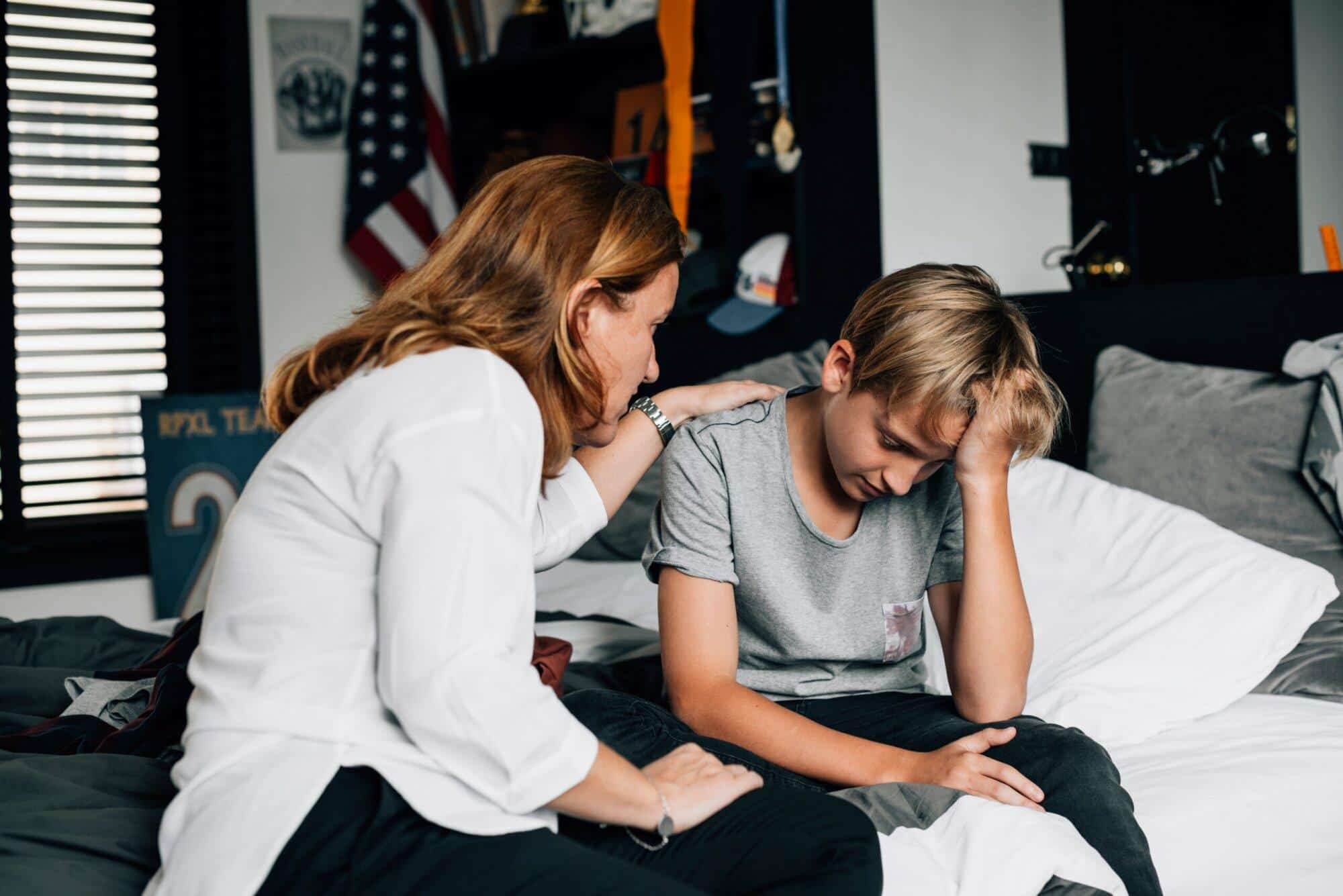https://tykesandteens.org/wp-content/uploads/2021/04/Eric-Garza-Tykes-Teens-CEO.jpg
The need has never been greater to focus on mental health awareness and removing the stigma and shame often associated with seeking mental health treatment. We must face the devastating impacts that the COVID-19 pandemic is having on the mental health of our children, families and community.
According to the National Alliance of Mental Illness:
- 1 in 5 U.S. adults experience mental illness each year
- 1 in 20 U.S. adults experience serious mental illness each year
- 1 in 6 U.S. youth aged 6-17 experience a mental health disorder each year
- 50% of all lifetime mental illness begins by age 14, and 75% by age 24
- Suicide is the 2nd leading cause of death among people aged 10-34
Over the past year, Tykes & Teens has seen:
- 300% increase in demand for services
- Clients exhibiting high risk symptoms, such as suicidal ideation and self-injurious behaviors, has doubled
- Client length of treatment has increased from 6 to 8 months
What can we expect to see in our children over the next six months?
This has been a long pandemic and it will take just as long or longer for us to get back to ‘normal.’ We can’t walk eight miles into the woods and expect to run out in five miles.
Anxiety will continue, including separation anxiety after being quarantined for a year, more parents going back to work in person and children returning to in-person school. Obsessive compulsive disorder (OCD), which is a combination of repetitive and uncontrollable thoughts (obsession) and ritualistic behaviors (compulsions), are very likely as they tend to emerge in areas of germs and safety. Generalized anxiety disorder is a collection of symptoms, such as excessive worrying and difficulty with sleep, that occur for at least six months. Depression will continue as children are still processing feelings of hopelessness, helplessness and unprocessed grief over deaths, missed holidays, graduations, weddings and family gatherings.
Everyone displays their traumatic experiences and stress in different ways through different periods of time. In addition, children are on different developmental levels. According to The Center on the Developing Child at Harvard University (2021), “resiliency is the result of a combination of protective factors, such as biological resistance to adversity and strong relationships with important adults in their family and community.” Additionally, “the single most common factor for children who develop resiliency is at least one stable and committed relationship with a supportive parent, caregiver or other adult.”
How can parents best help keep their children engaged through the summer and prepare for school in the fall? There are several wonderful strategies.
First, we need to start with self-care. We cannot take care of those around us if we are not taking care of our personal mental health and wellbeing. We must also take the time to truly listen to those around us, including our children, and supporting their mental health.
A few tips and tools:
- Begin with observing your child’s behaviors. All children display behaviors in patterns and routines. Look for sudden changes in behaviors, such as avoidance or dislike in activities that used to be a norm. Know the 10 Moms for Mental Health red light warning signs of potential mental health issues in children and teens.
- Talk to your children about behaviors and emotions together. Make sure you are in a space to listen and contain your child. The more you do it, the easier it becomes. There are a variety of resources, including tips from Mental Health First Aid, such as conversation starters and how to improve your listening.
- Processing grief may require multiple stages and younger children may benefit from using art or other nonverbal techniques.
- Stick to a routine and trust the process when returning to school or activities.
- Promote self-care by using a thermometer to know when stress is rising.
- Most importantly, know that there is hope and children are very resilient! With your support, they can overcome anxiety and depression, and they can come out of this pandemic strong and in good mental health.
Take care and be well,
Eric
For more information and resources on getting help, visit www.tykesandteens.org/get-help/ and www.tykesandteens.org/paint-the-town-green/, email gethelp@tykesandteens.org or call 772-220-3439.
For more information on how you can give help and support children’s mental health in our community, visit www.tykesandteens.org/donate-now/, email givehelp@tykesandteens.org or call 772-220-3439.
Eric Garza, MHA, LCSW, is the CEO of Tykes & Teens, a leading provider of the highest quality, evidence-based mental health services and programs for children and adolescents for 25 years. He holds a Master of Health Administration, is a licensed clinical social worker, a certified addictions professional, a clinical sexologist, and a qualified supervisor for registered clinical social work interns.



